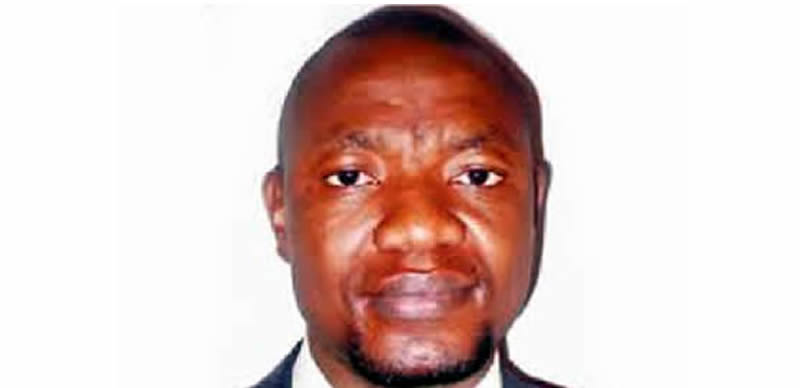
One of the delightful offerings from social media last week was the viral video of a dazed Sierra Leonean lady walking with the Prime Minister of The Netherlands, Mark Rutte, on the streets of The Hague. Salma was shocked to see Rutte, the leader of a powerful European country, going to work with no escorts or security details tagging along. From the video, she looked so pleasantly rattled because the picture cut by her encounter with the friendly and chatty politician was totally in contrast with what she was used to in Africa where even the lowest of political leaders are guarded by armed men wielding sophistical weapons – with bullet vests and armored vehicles to boot.
To me, that video was a vivid testimony to the green credentials of the nation that has recently become Europe’s per-capita solar powerhouse of more than 48 million solar panels installed, with an average of two solar panels per inhabitant and an installed capacity of more than 1 kilowatt per person. Certainly, there is a direct relationship between simplicity and green living, and Prime Minister Rutte epitomises the resource-efficient new man, who has done away with the encumbrances of the brown economy-induced consumerism. Hence, as Nigeria starts a new democratic era, we may want to aspire for the green nation and the new man to lead it into the immense possibilities envisioned in a green future.
And that brings us to the second Dutch offering from last week. The Abuja leg of The Netherlands Nigeria Clean Tech event took place at the Transcorp Hilton Abuja on June 7. The event was organised by the Dutch government in partnership with the Federal Government with the aim of fostering collaboration in achieving Nigeria’s ambition to transition to a green economy by partnering in the areas of solar energy, climate-smart agriculture, waste recycling and regreening of the Sahel.
The Vice-Minister for Foreign Trade of the Kingdom of The Netherlands, Ms. Hanneke Schuiling, opened the event by stating the obvious: climate change is affecting us all, but in different ways. While The Netherlands is threatened by sea level rise, Nigeria is inundated by the bifurcated traumas of drought and flooding. “In Nigeria, we have all witnessed the terrible news about the floods that killed 600 people and made 1.3 million people homeless last year. Meanwhile, in the North of the country, farmers are suffering from droughts and the drying out of their farmlands,” She said.
However, the point to note is how the European nation has surmounted its own problems and turned its climate vulnerabilities to immense advantages. Climate change in The Netherlands is also hitting from different directions. The average temperature in the country rose by more than 2 °C from 1901 to 2020. It resulted in increased frequency of droughts and heatwaves. And, because significant portions of The Netherlands have been reclaimed from the sea or otherwise are near sea level, the country is now vulnerable to sea level rise.
But the magic is in the way it has adapted by deploying appropriate know-how. This tiny country is short on land, but a forward-thinking government and innovative solutions are overcoming the lack of space. For instance, with land for renewables short nearly everywhere in the world, the Dutch is installing solar panels on car parks, commercial lakes, sheep grazing fields, strawberry farms, disused churches, train stations and airfields.
In the Dutch countryside, about 130km east of Amsterdam, an unusual-looking hill towers and glistens above farmhouses, leafless trees and muddy grassland. The hill – 25 metres tall – is built from 15 years’ worth of household and business waste. But today, the former landfill is now covered with 23,000 solar panels which generates 8.9 megawatts of power, enough electricity for about 2,500 households.
The project reflects a wider drive in The Netherlands, not only finding innovative places to put new renewable energy capacity, but doing away with things that are not needed – as Prime Minister Rutte does in abandoning fossil fuel guzzling cars for cycling and walking to his office every day.
This is why we must focus on the outcomes of The Netherlands Nigeria Clean Tech Event. Dr Eniola Ajayi, Nigerian ambassador to The Netherlands, said one of its objectives was to get newer and smaller Dutch companies to become conversant with Nigeria, as the country is already used to the big names from The Netherlands such as Shell, Unilever, KLM, FrieslanCampina, and others.
I suggest both countries set up bilateral green social enterprise development hubs that not only ignites business relationships, but also explore other areas such as technology transfer and circularity educational curriculum. Dutch social enterprises entities, who graced the occasion, like “Closing The Loop” and “Waste Transformers” have a lot to teach Nigerian eco-entrepreneurs in order for us to take advantage of the enormous waste resources that have plagued our ecosystem, but which could essentially become wealth and job-generators if we are able to deploy the right acumen to innovate and engage.
Nevertheless, one should not lose sight of the fact that The Netherlands is already adding value in other areas, especially the agricultural sector. For example, the Lagos Circular Economy Hotspot, a first-of-its-kind event coming up in a matter of weeks, is an initiative of the Kingdom of Netherlands, bringing together policy-makers, businesses, the civil society, knowledge institutions and government of different nations to collaborate and share knowledge on the circularity concept.
Dutch companies in Nigeria are also actively involved in Nigeria’s horticulture sector, which presents a range of opportunities and challenges and also enables efforts to produce nutritious food for everyone while restoring nature and biodiversity. The Dutch Embassy supports the HortiNigeria programme which transforms vegetable value chains in Kano, Kaduna, Ogun, and Oyo states. Through this, fewer vegetables have to be imported and many jobs and business opportunities are created in Nigeria.
To be sure, The Netherlands is the second-largest exporter of agricultural products in the world, after the United States. It is known for its flowers, cheese, tomatoes, vegetables and beer. The Dutch horticulture sector has an extensive logistics network. Vegetables harvested in The Netherlands can be sold in New York the very same day. The Dutch food sector has developed smart storage and packaging technologies that keep food fresh longer. What is more, it wants to reduce the use of antibiotics in food production in order to combat antimicrobial resistance in humans and animals.
Another daunting task is trying to pick the Dutch green sector to work with as the entire value chain is beneficial. According to Thessa Bagu of Commercium Africa, a trade facilitation consultancy for international companies in key African markets, “The Dutch has comparative advantage across the entire green spectrum. There’s energy transition, particularly solar. Then there is climate change adaptability. For example, we have companies that have technology so you can grow plants in almost a desert. Then we also have in terms of circularity and waste management, some of the most advanced companies. We have worked together with Nigerian partners to offer affordable yet effective solutions. So the Dutch has comparative advantage across the whole value chain.”
Still, a smart and caring government must not miss the point. In order to improve the citizens’ living standards, provide electricity, and transition to a green economy, the government must first of all cut down on the cost of governance. This will not only help justify its good intentions in taking some tough policy decisions like the removal of fuel subsidy, but it will free up resources to address infrastructural priorities and then signal to the world that Nigeria is ready for business.




